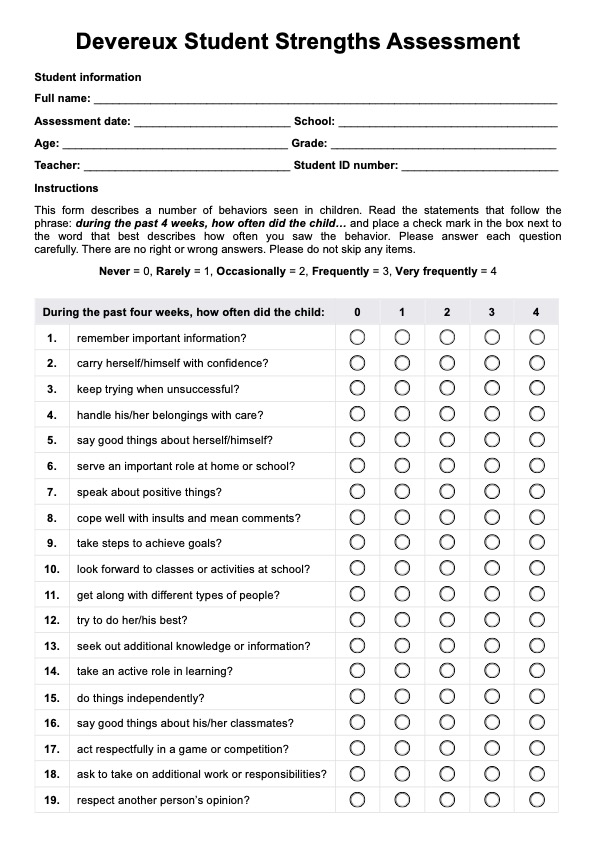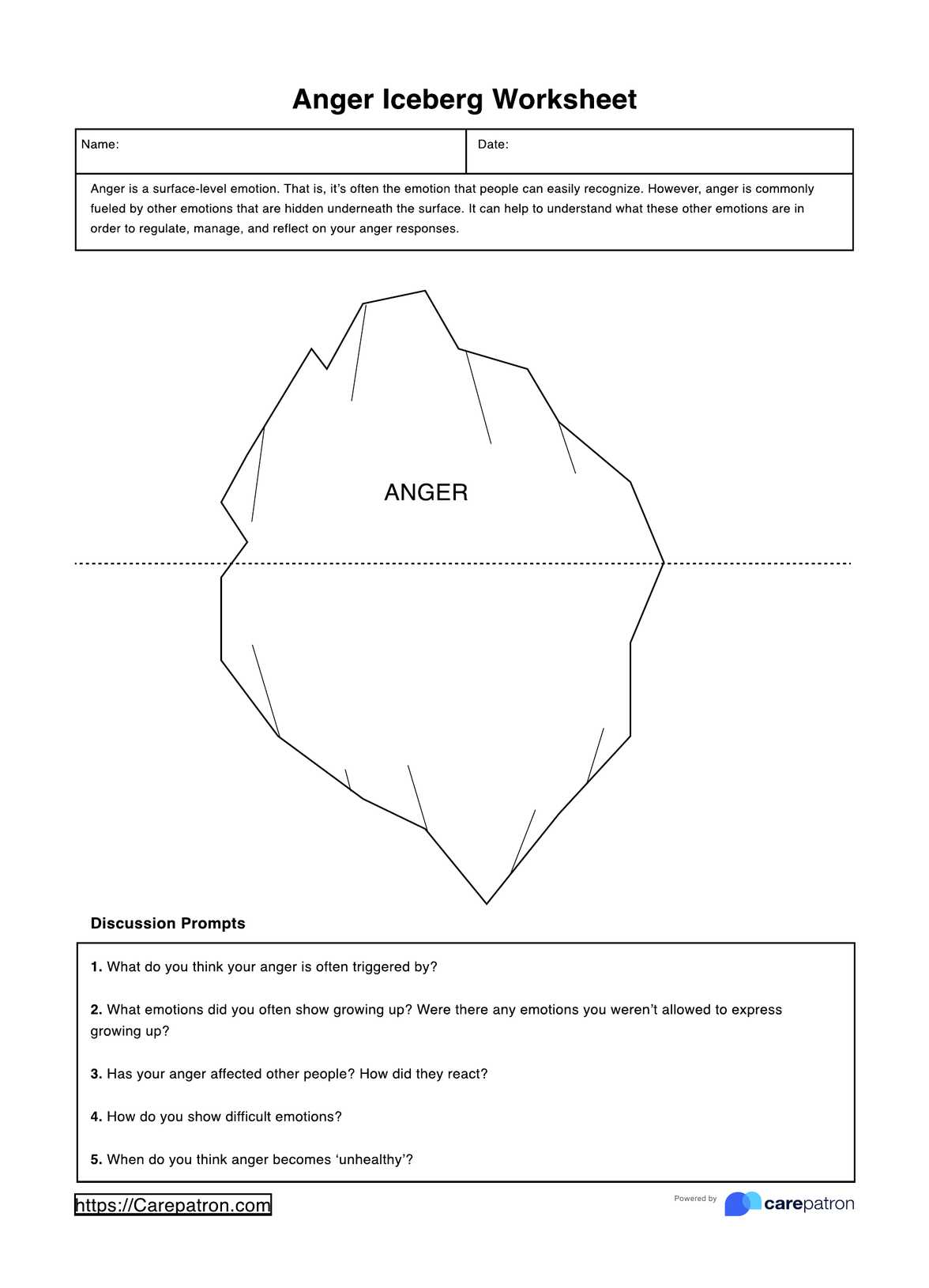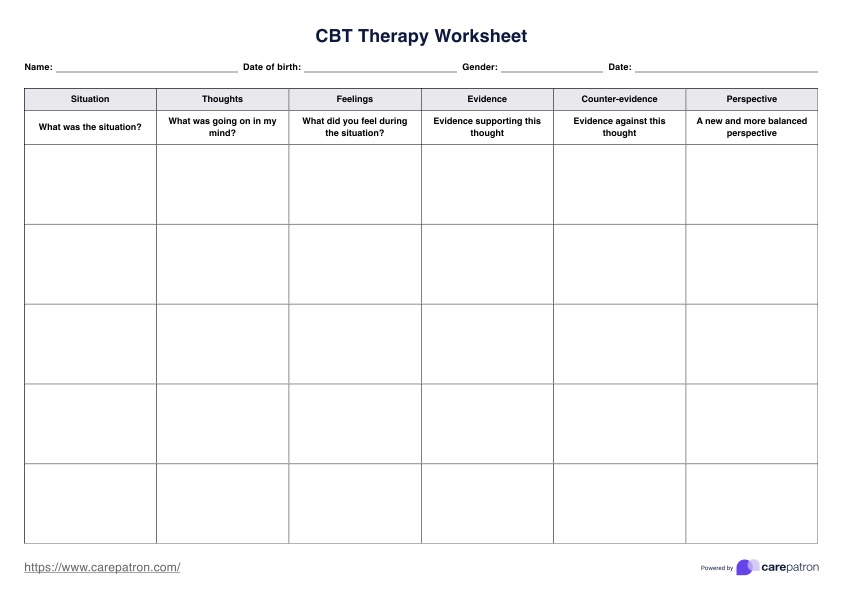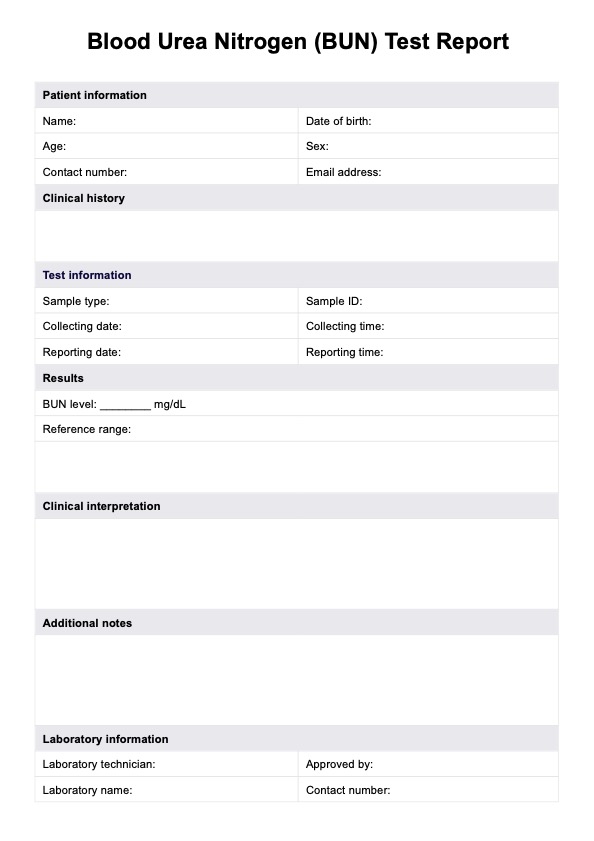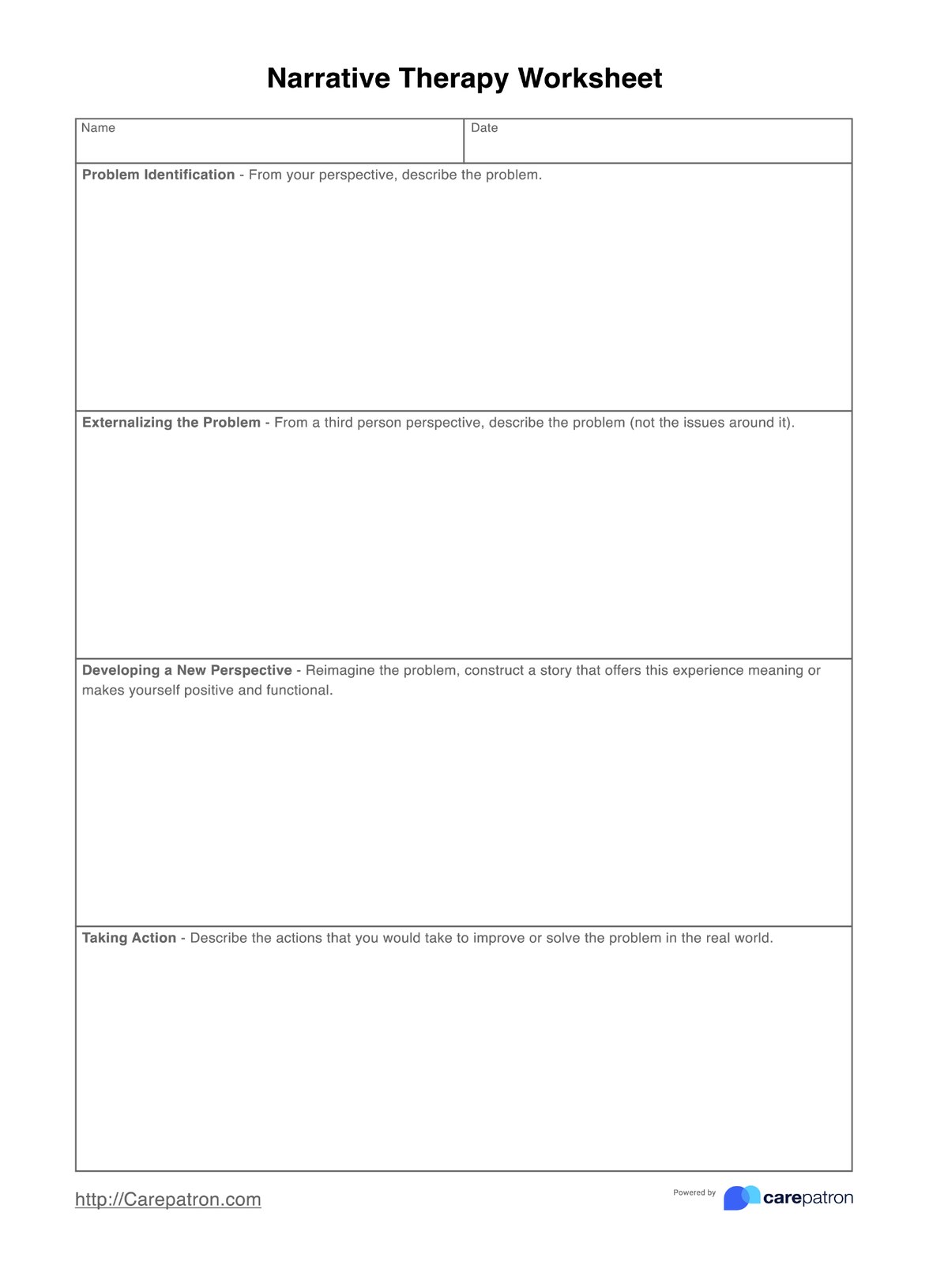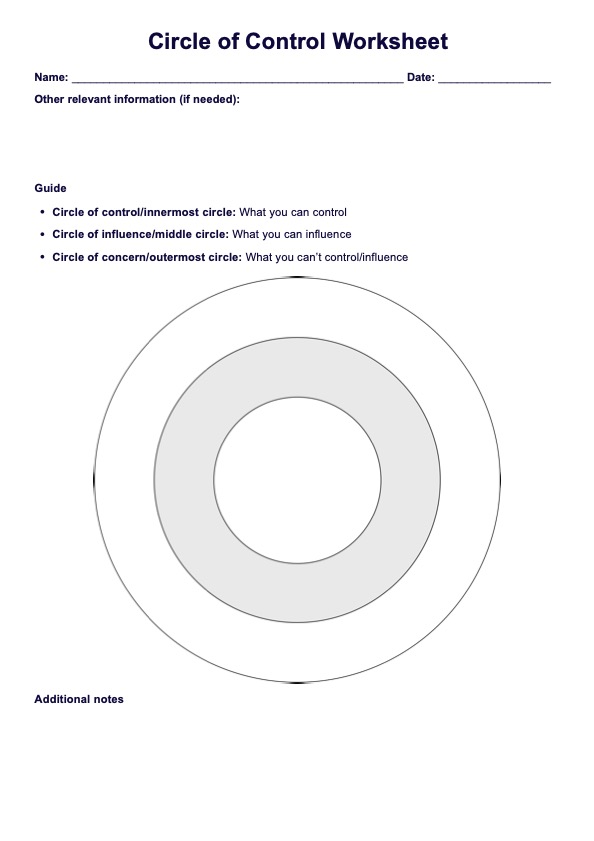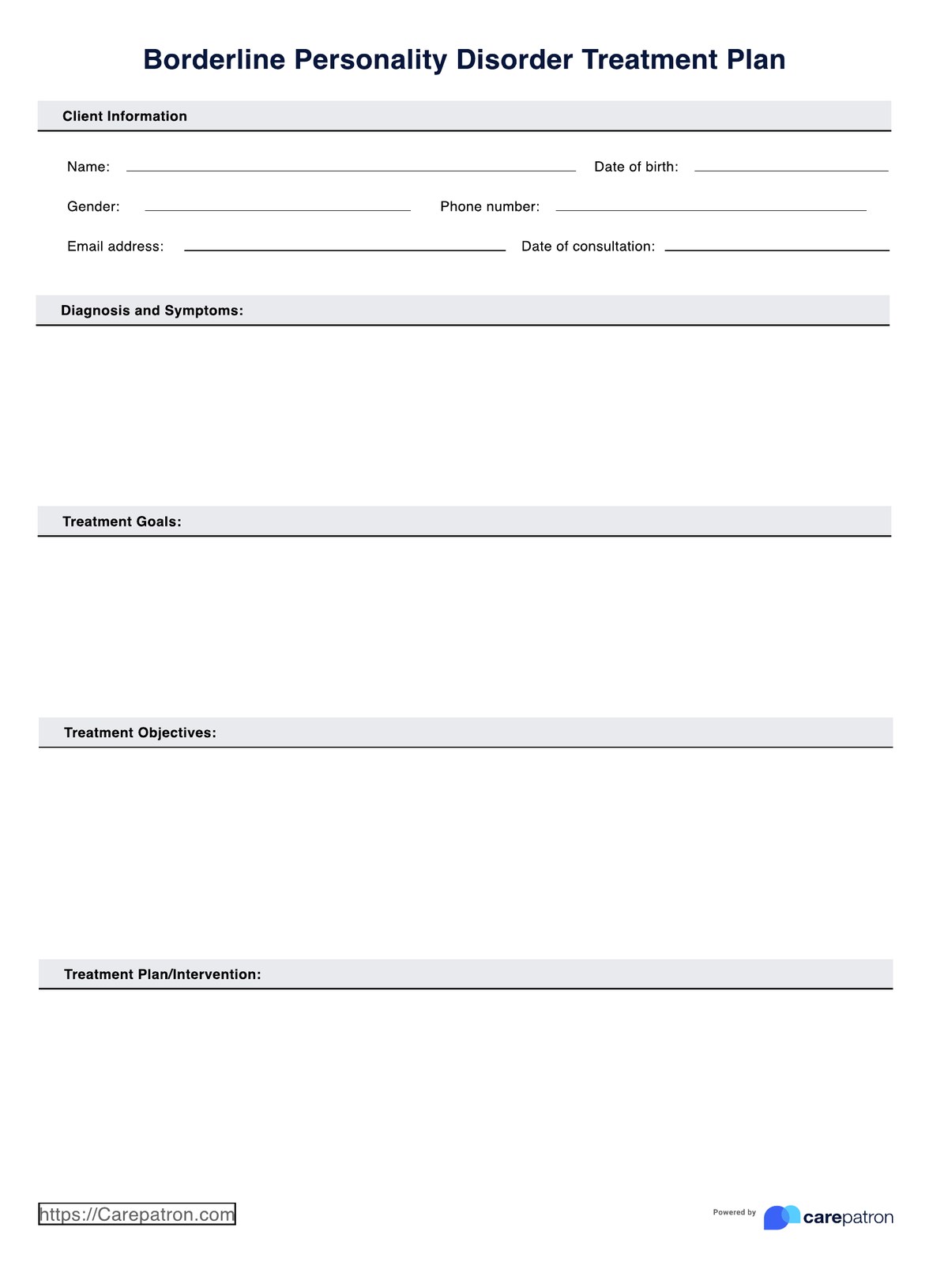ADHD Symptom Tracker
Monitor the changes and patterns of ADHD symptoms among patients with our ADHD Symptom Tracker. Download the free PDF file here.


What is ADHD?
Attention-deficit/hyperactivity disorder, more commonly referred to as ADHD, is a neurodevelopmental disorder that affects millions of individuals worldwide. It is characterized by attention difficulty, hyperactivity, and impulsiveness that are inconsistent with the individual's developmental level and impact executive function. However, ADHD isn't solely about having too much energy or difficulty paying attention. It's a complex condition that varies from person to person and deeply affects daily functioning and overall well-being.
One core characteristic of ADHD is inattention in tasks that require sustained mental effort. This might be bouncing from one task to another without completing them, difficulty maintaining conversations, or poor time management. This can then lead to missed details or frequent misunderstandings.
Another distinguishing characteristic is hyperactivity. For some, this is expressed more physically - perpetual motion, inability to stay seated, fidgeting, or talkativeness. However, in others, particularly adults, it may be more subtle and manifest as a sense of inner restlessness.
Impulsivity is another common characteristic of individuals with ADHD. It can manifest as making decisions and engaging in risky behavior without considering possible consequences, difficulty waiting for their turn or interrupting others during conversations.
ADHD Symptom Tracker Template
ADHD Symptom Tracker Example
What is an ADHD Symptom Tracker?
An ADHD Symptom Tracker is a valuable tool designed to assist in diagnosis and ongoing ADHD management. From its name, it is helpful in tracking symptoms of ADHD over time. However, it also does more as it generates important insights that can be considered an outcome measure to inform and enhance a treatment plan for managing ADHD.
The ADHD Symptom Tracker is a tool for logging symptoms and their frequency. These symptoms can include behaviors linked to inattentiveness, hyperactivity, impulsivity, and any other difficulties that could be related to ADHD. The tracker provides an organized and systematic way to record ADHD symptoms that can surface across different settings, such as at home, school, or at work.
Due to its ongoing nature, the symptom tracker can capture relevant information about the patterns of ADHD symptoms over days, weeks, and even months. It addresses the constraints of a single observation within one appointment, providing a more holistic picture and a way to monitor the progress of the individual's experience with ADHD.
How to use our ADHD Symptom Tracker PDF
Our ADHD Symptom Tracker Template is a thoughtfully designed tool that can be a game changer for your clinical practice. This is formatted as a weekly tracker with symptoms based on the Diagnostic and Statistical Manual of Mental Disorders (DSM-5) criteria for ADHD. Here are the steps to use it:
Step 1: Access your copy of the ADHD Symptom Tracker
Download or print our template through this link, use the search function in our templates gallery, and type in ADHD Symptom Tracker. The template is designed for daily use but can be adapted based on personal or professional requirements. You can then provide a copy of the tracker to your patients.
Step 2: Daily symptom rating
Fill out patient information. Then, for each day of the week, guide the patient to rate the frequency of each listed symptom using the provided scale (0 - never to 4 - very often). This daily rating allows for a more comprehensive understanding of symptom patterns throughout the week.
Step 3: Calculate weekly totals
At the end of the week, sum up the daily scores for each symptom to get a weekly total. This provides a quantitative measure of symptom severity and helps identify the most prominent symptoms.
Step 4: Record additional observations
Encourage your patient to use the "additional notes" section to document any relevant contextual information, patterns observed, or patient feedback. This qualitative data can offer valuable insights that complement the numerical ratings.
What are the benefits of having an ADHD Symptom Tracker?
Our daily ADHD Symptom Tracker is an invaluable tool in the management and treatment of ADHD. These trackers provide a structured method to monitor symptoms over time, offering several benefits for both healthcare providers and patients. They play a crucial role in tailoring ADHD treatment approaches and promoting improved well-being.
Optimizing medication management
ADHD Symptom Trackers are particularly useful in assessing the efficacy of ADHD medications. By consistently documenting symptom frequency, healthcare providers can make more informed decisions about medication types, dosages, and timing. This allows for fine-tuning of medication regimens, potentially leading to better symptom control and fewer side effects.
Enhancing treatment planning
Regular symptom tracking provides valuable insights into the patterns and triggers of ADHD symptoms. This information can guide the development of comprehensive treatment plans that may include a combination of medication, behavioral therapies, and lifestyle changes. The tracker serves as a foundation for collaborative discussions between healthcare providers and patients, fostering a more personalized approach to ADHD management.
Supporting clinical research
In the context of clinical trials, ADHD Symptom Trackers offer a standardized method for data collection. This consistency in symptom reporting is crucial for evaluating new treatments or interventions. Researchers can use these trackers to gather more accurate and detailed information about symptom progression and treatment responses over time.
Building routine and responsibility
The act of consistent tracking fosters a routine and instills a sense of responsibility toward one's health and well-being in their daily life. It's a proactive step that reinforces the individual's role in managing their ADHD, encouraging an active stance towards treatment.
Enhanced self-awareness
Using this tool cultivates a deeper self-awareness regarding the nature of ADHD symptoms. This increased awareness is a significant step towards self-management and empowerment. Practitioners can then tailor interventions and strategies to align more closely with the individual's lived experience.
Commonly asked questions
Yes, although ADHD is often identified in children, it can continue into adulthood or be diagnosed for the first time in adults. Symptoms in adults might manifest differently, often showing more difficulties with organization, time management, and maintaining focus.
Not always. While medication can effectively manage symptoms for many people, there are many possible treatments. Behavioral therapy, lifestyle modifications, and educational support can also play crucial roles in treatment, especially for children.
Yes, for some individuals, symptoms may lessen as they age, particularly hyperactivity. However, challenges with attention and impulsivity can persist into adulthood. Ongoing management can help manage symptoms throughout a person's life.



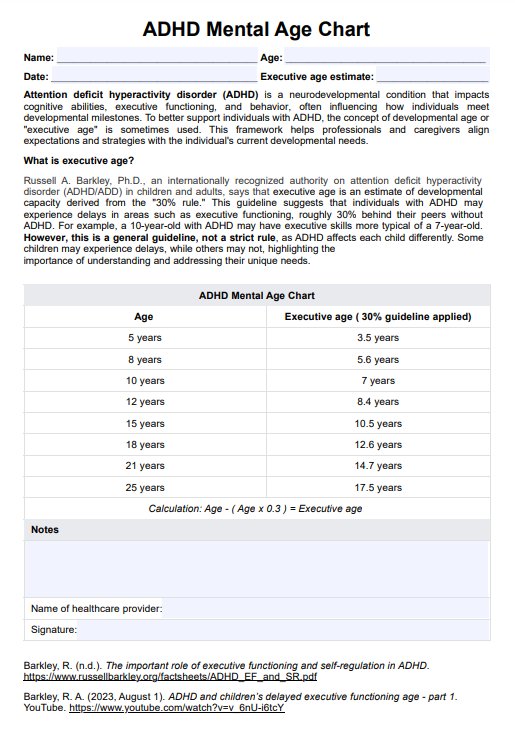
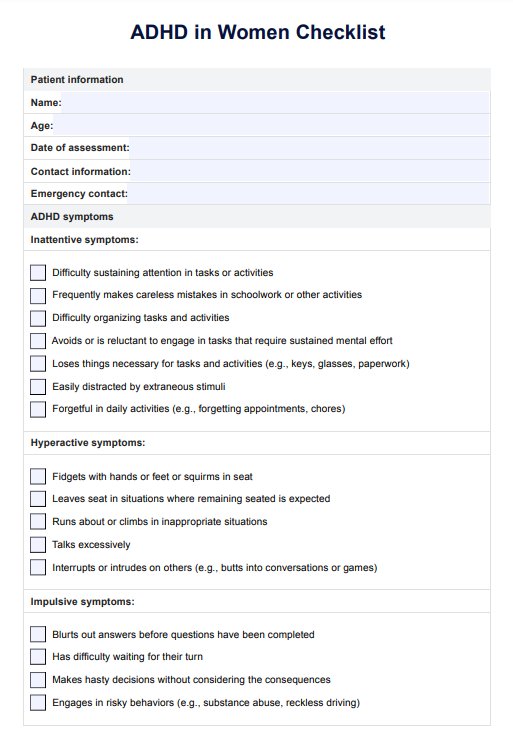
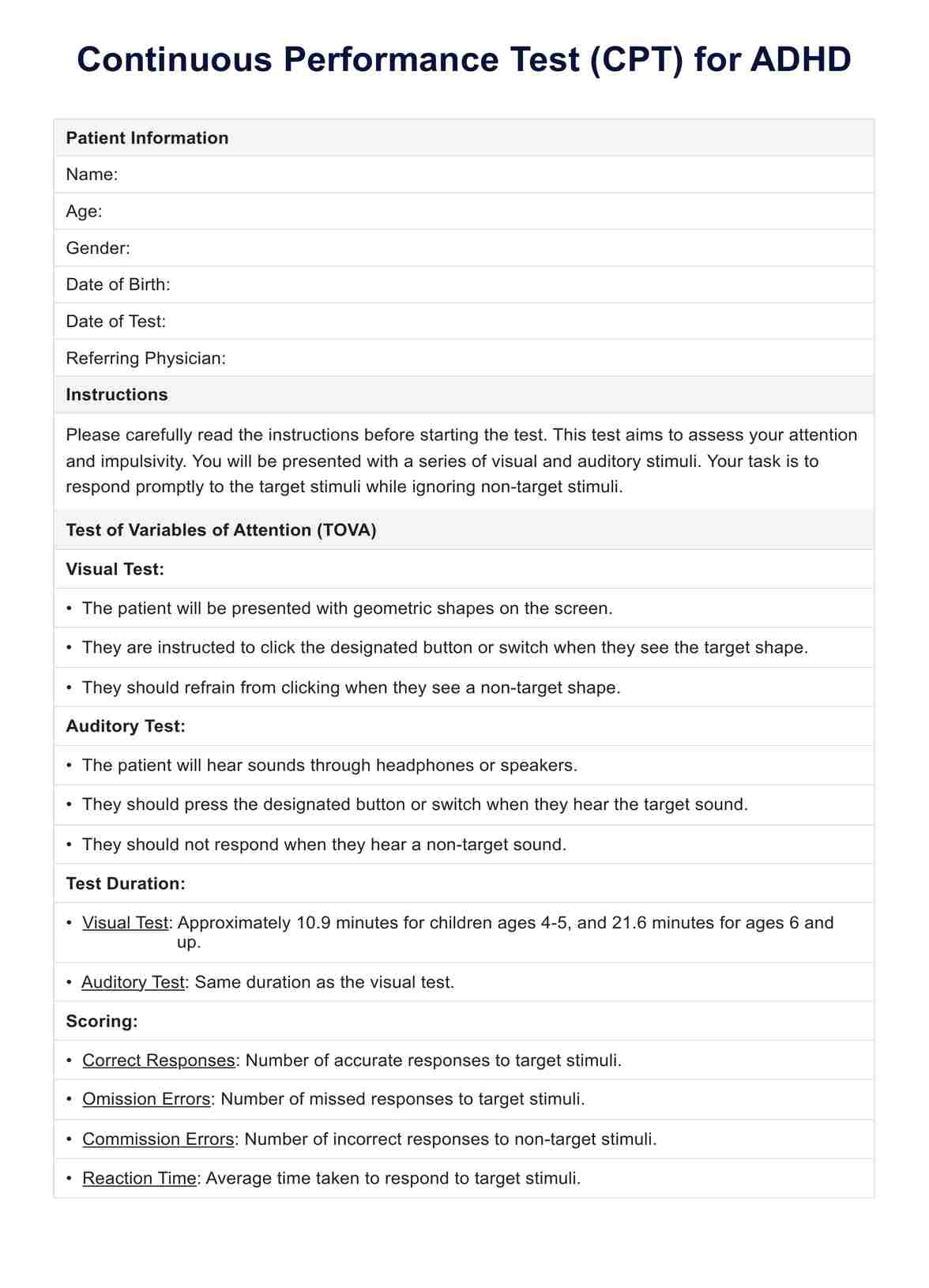
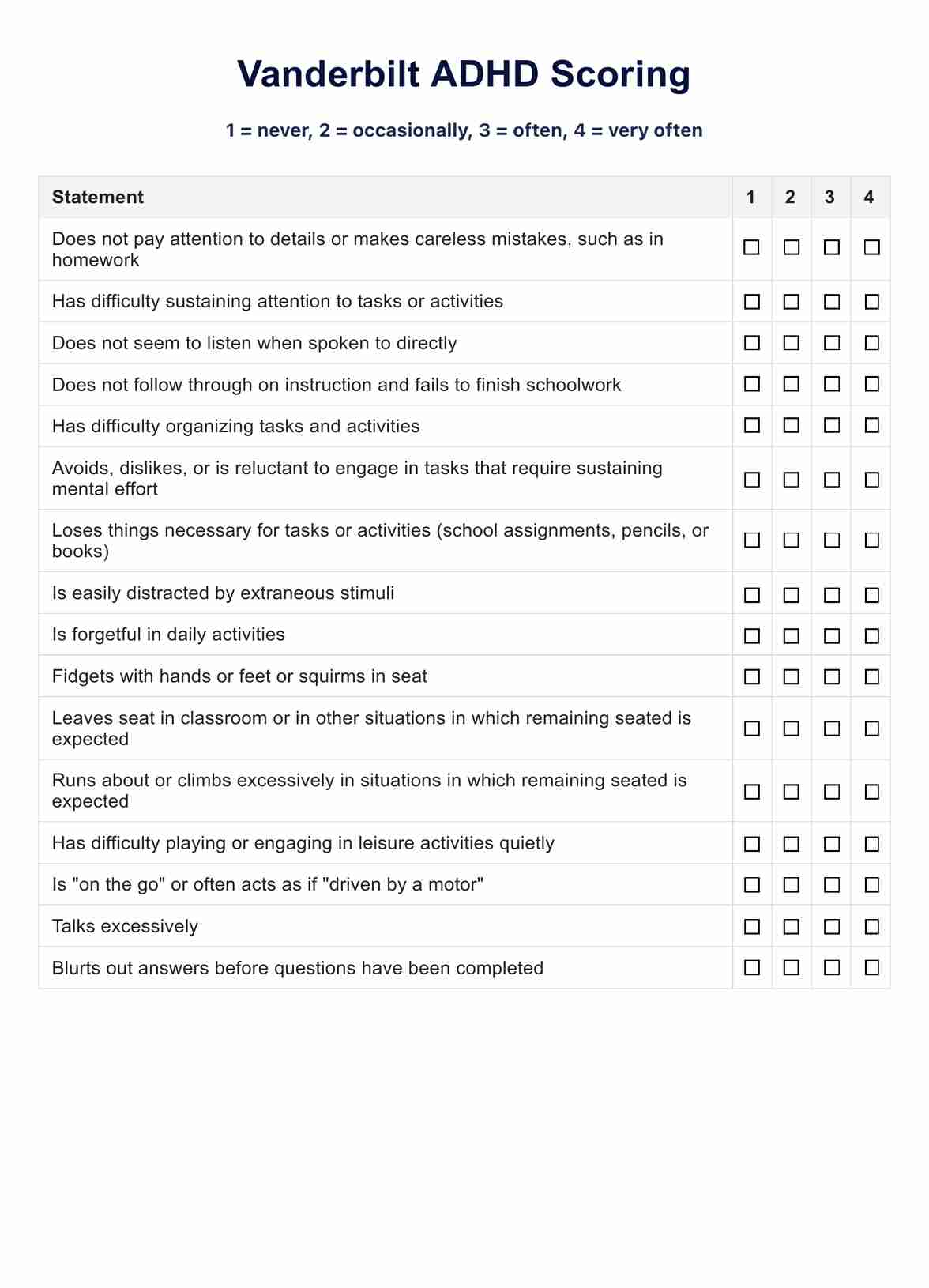
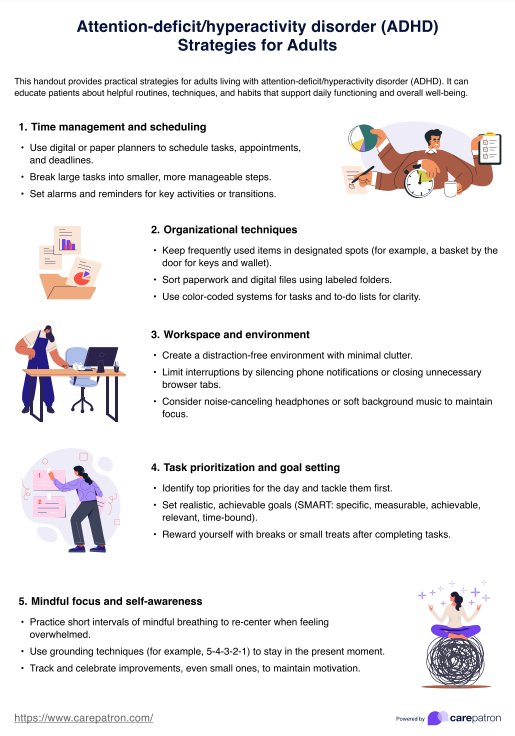
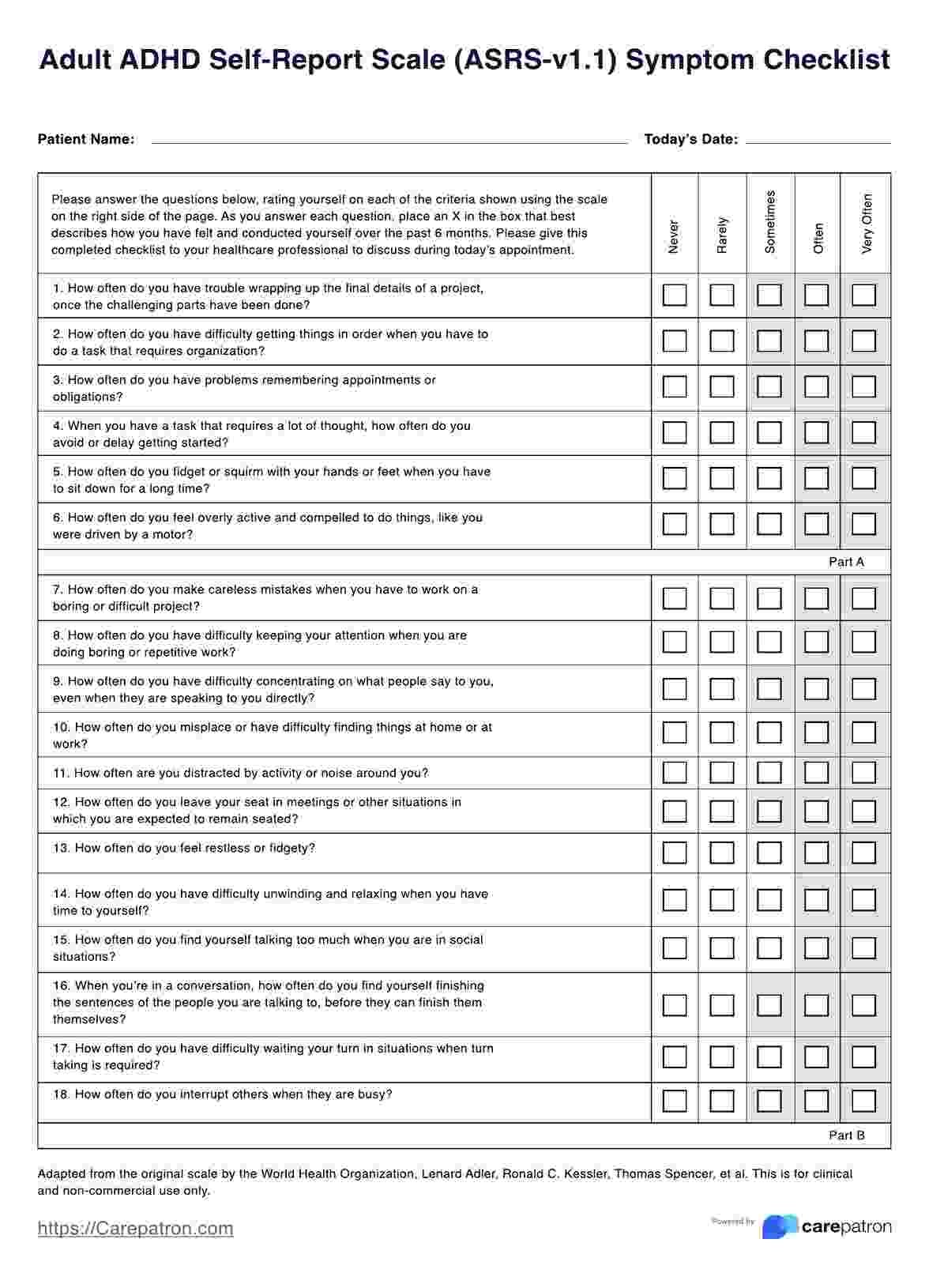
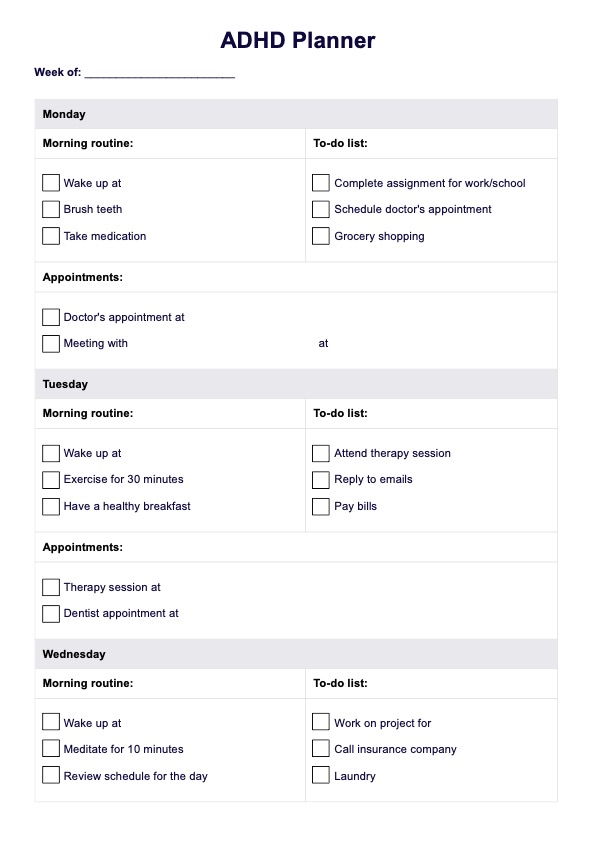
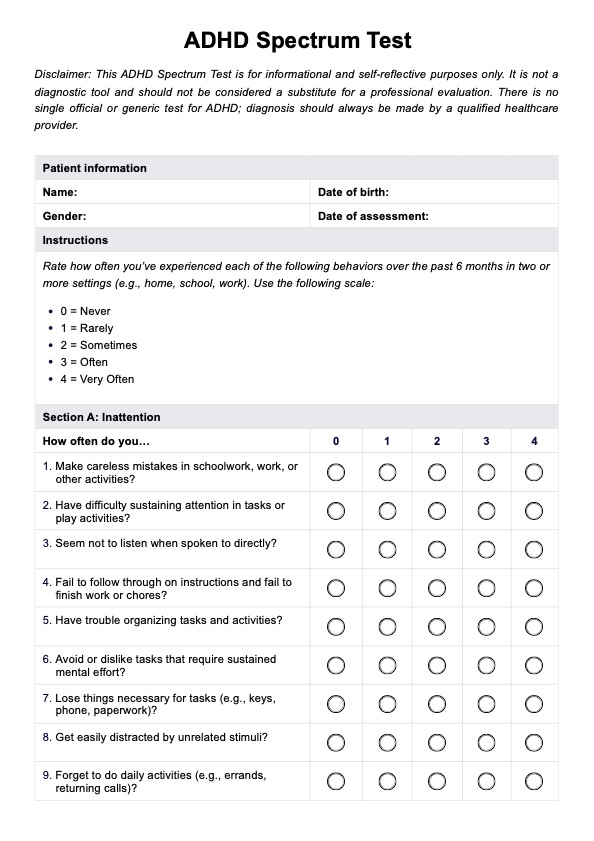
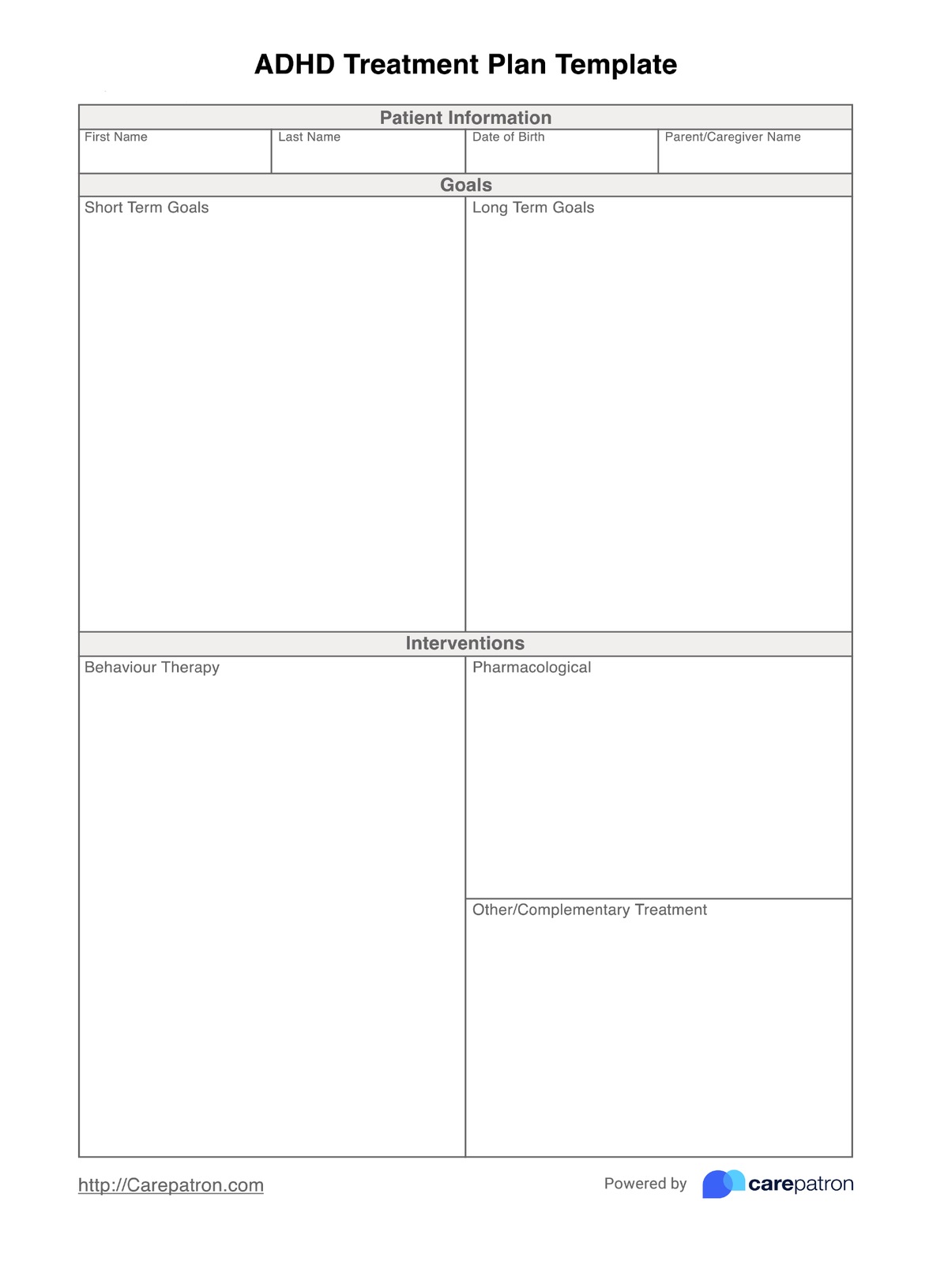
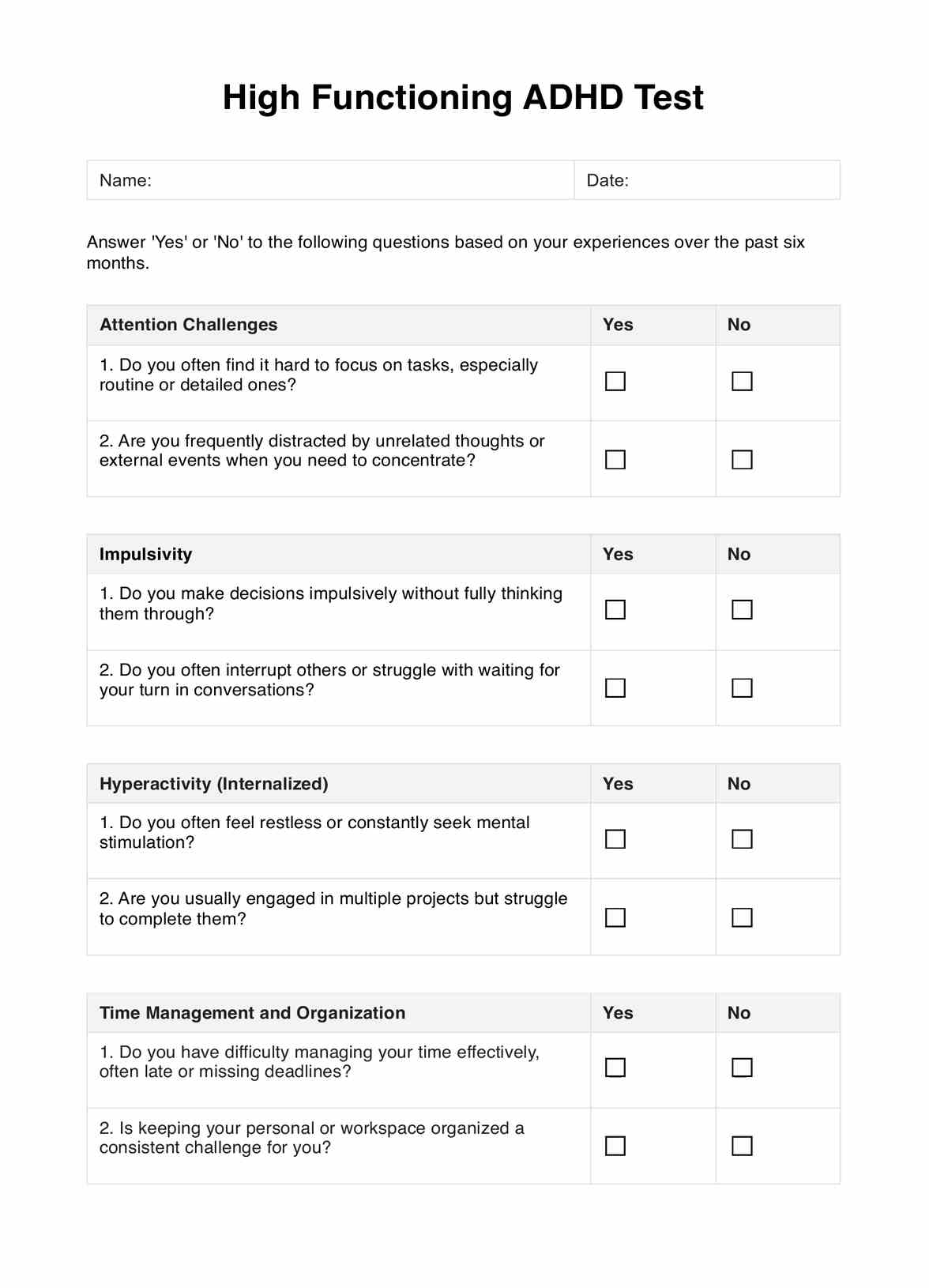
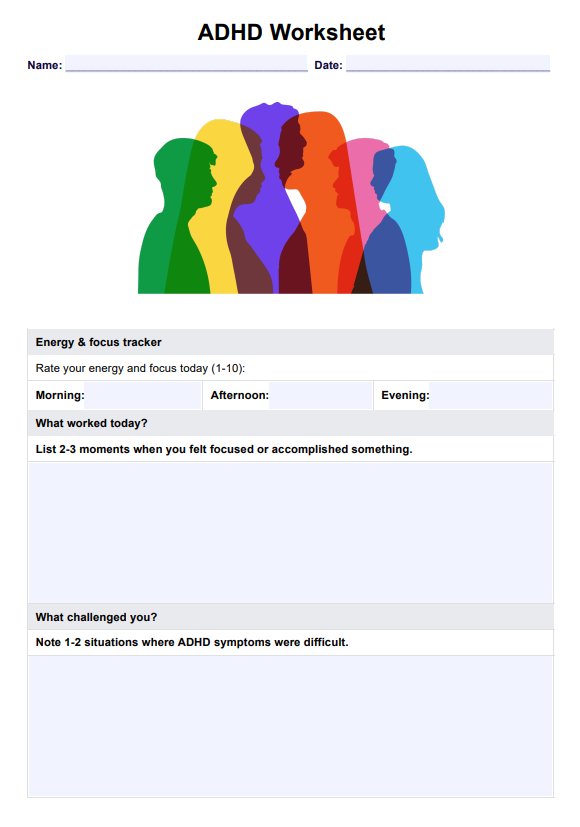
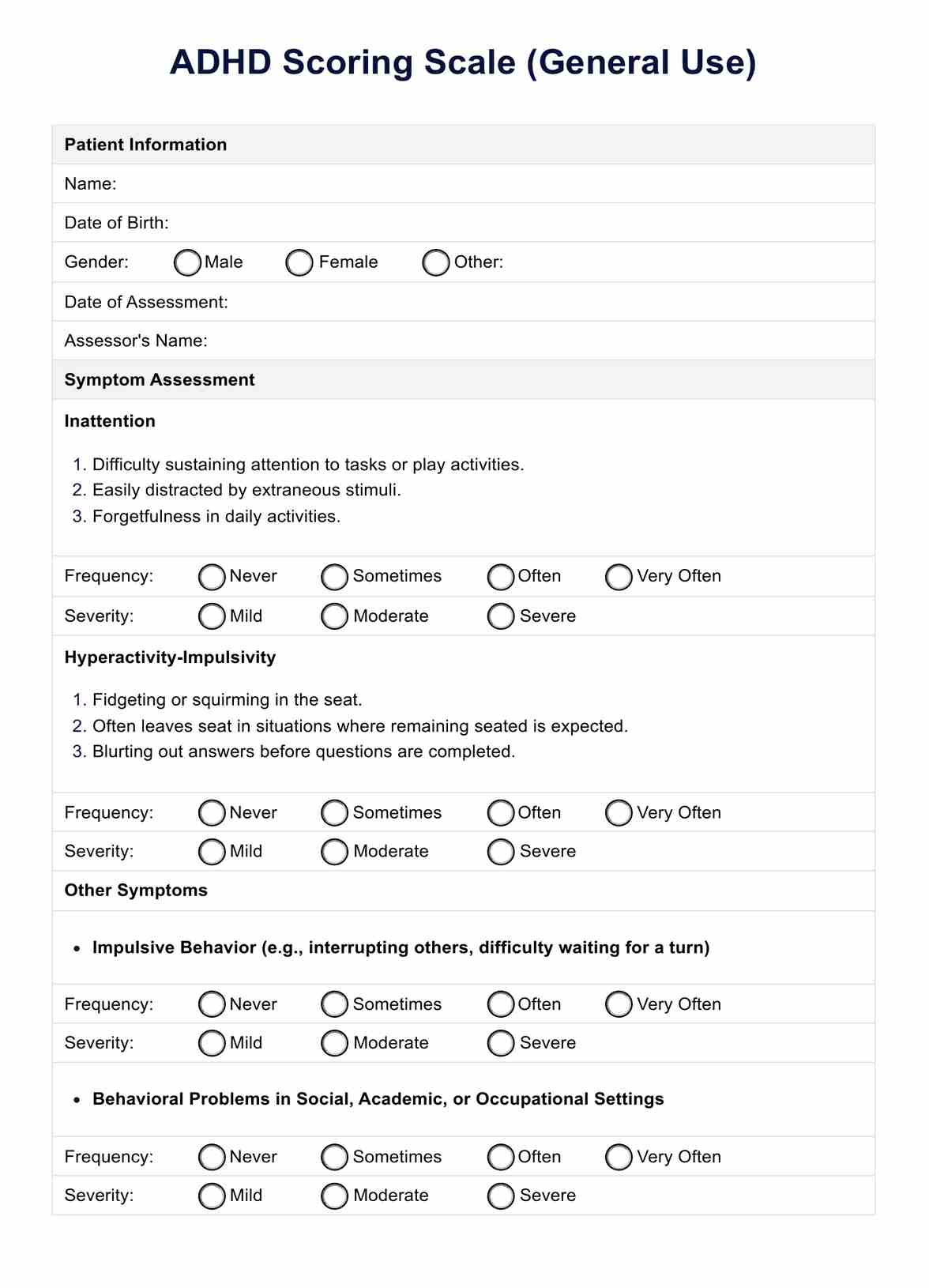
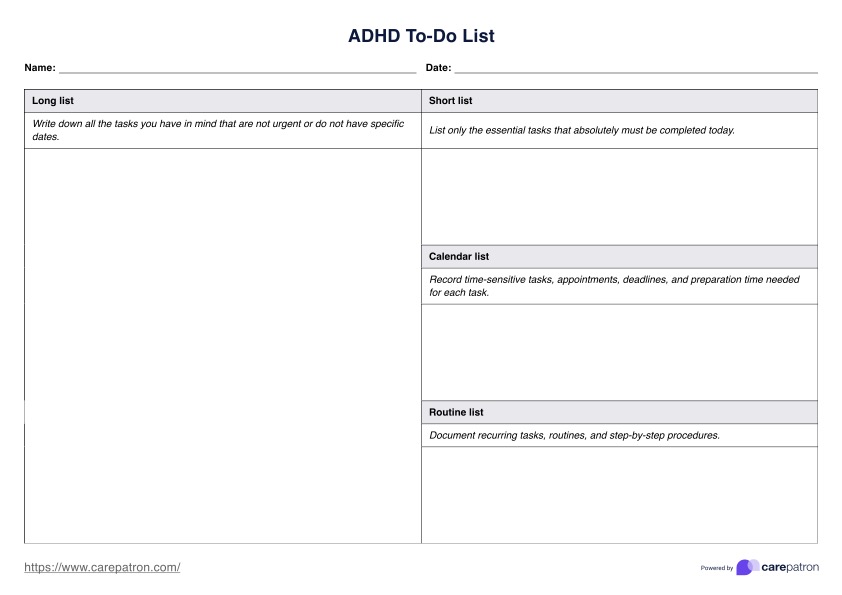
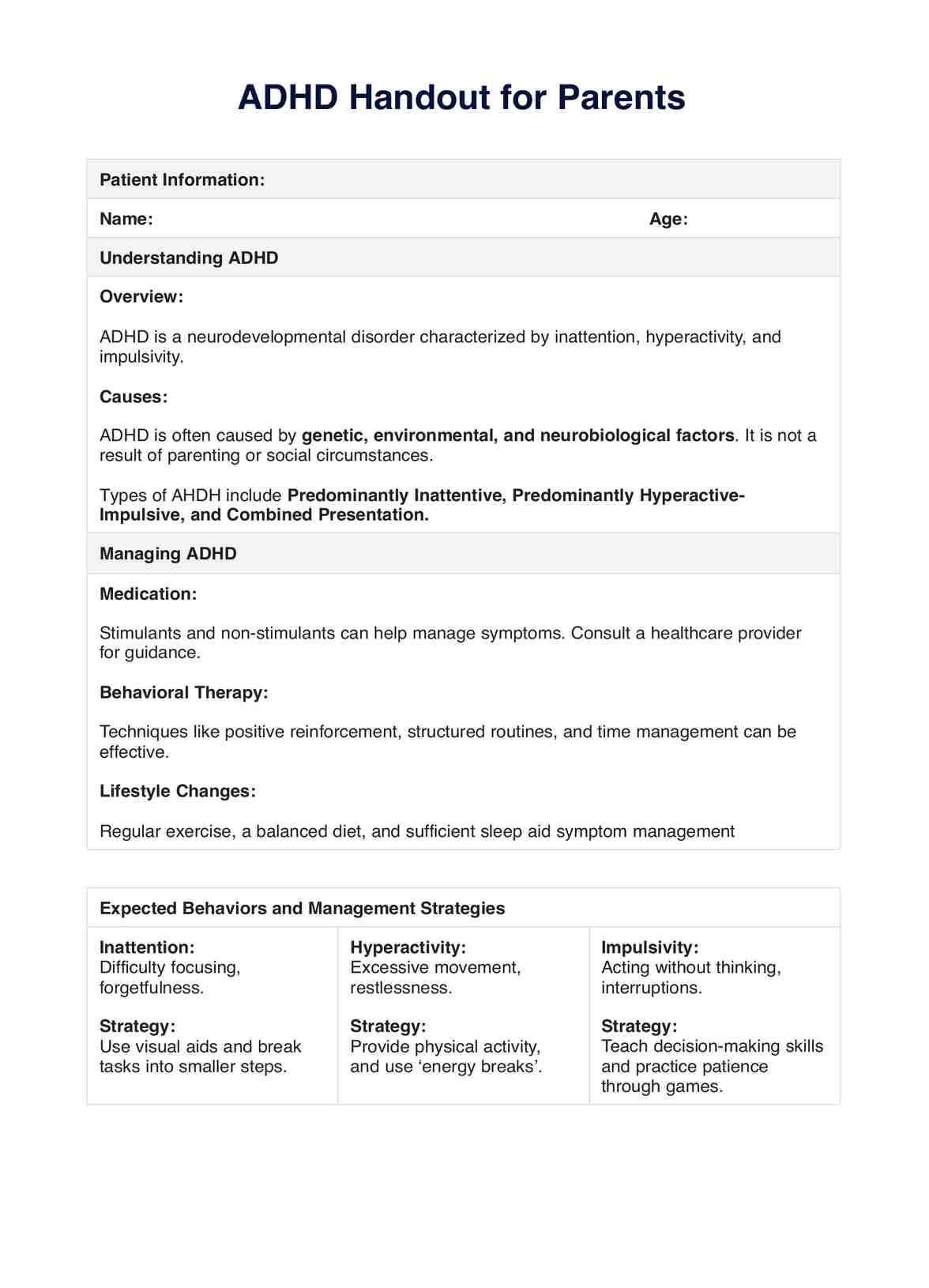
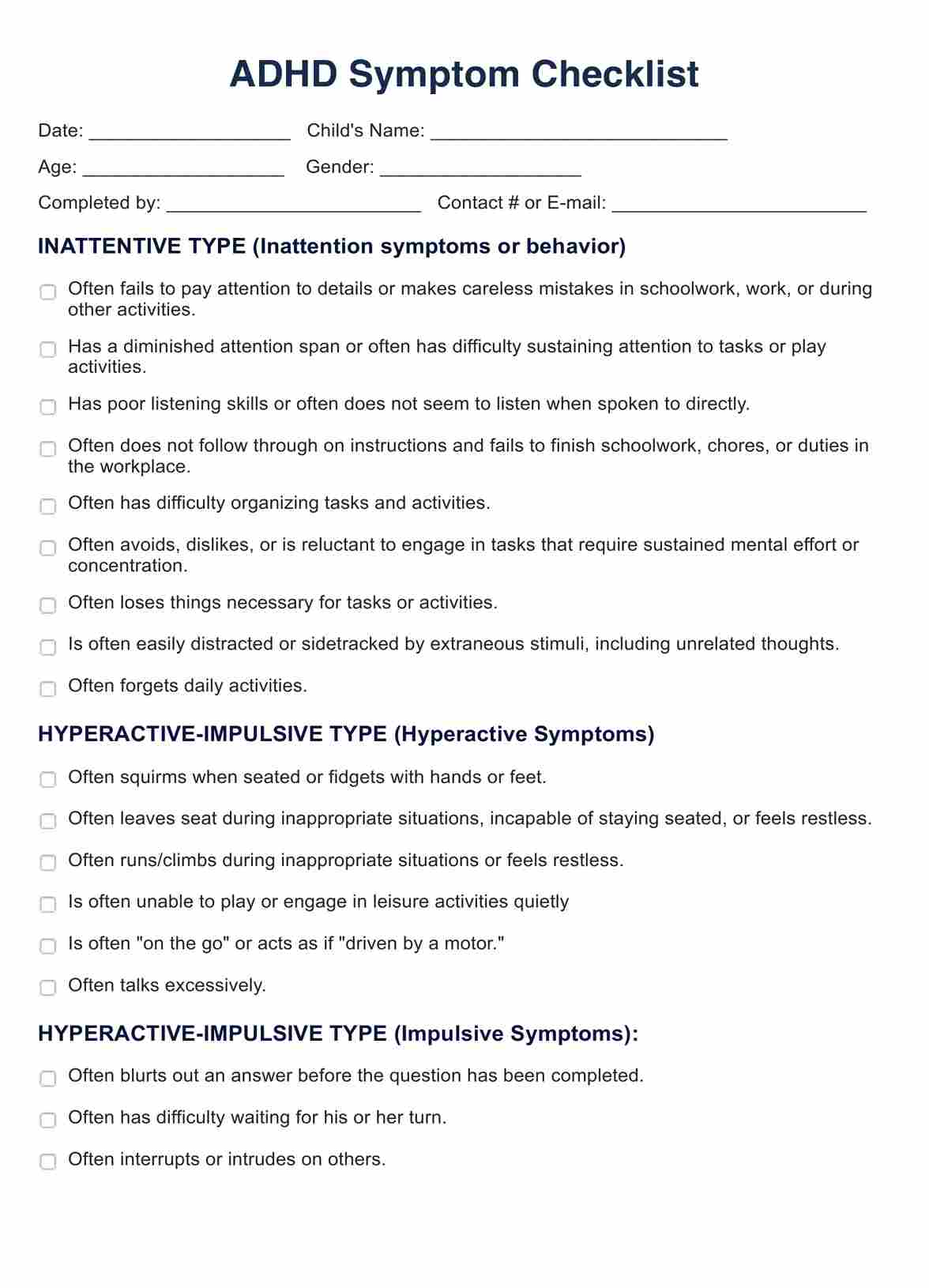
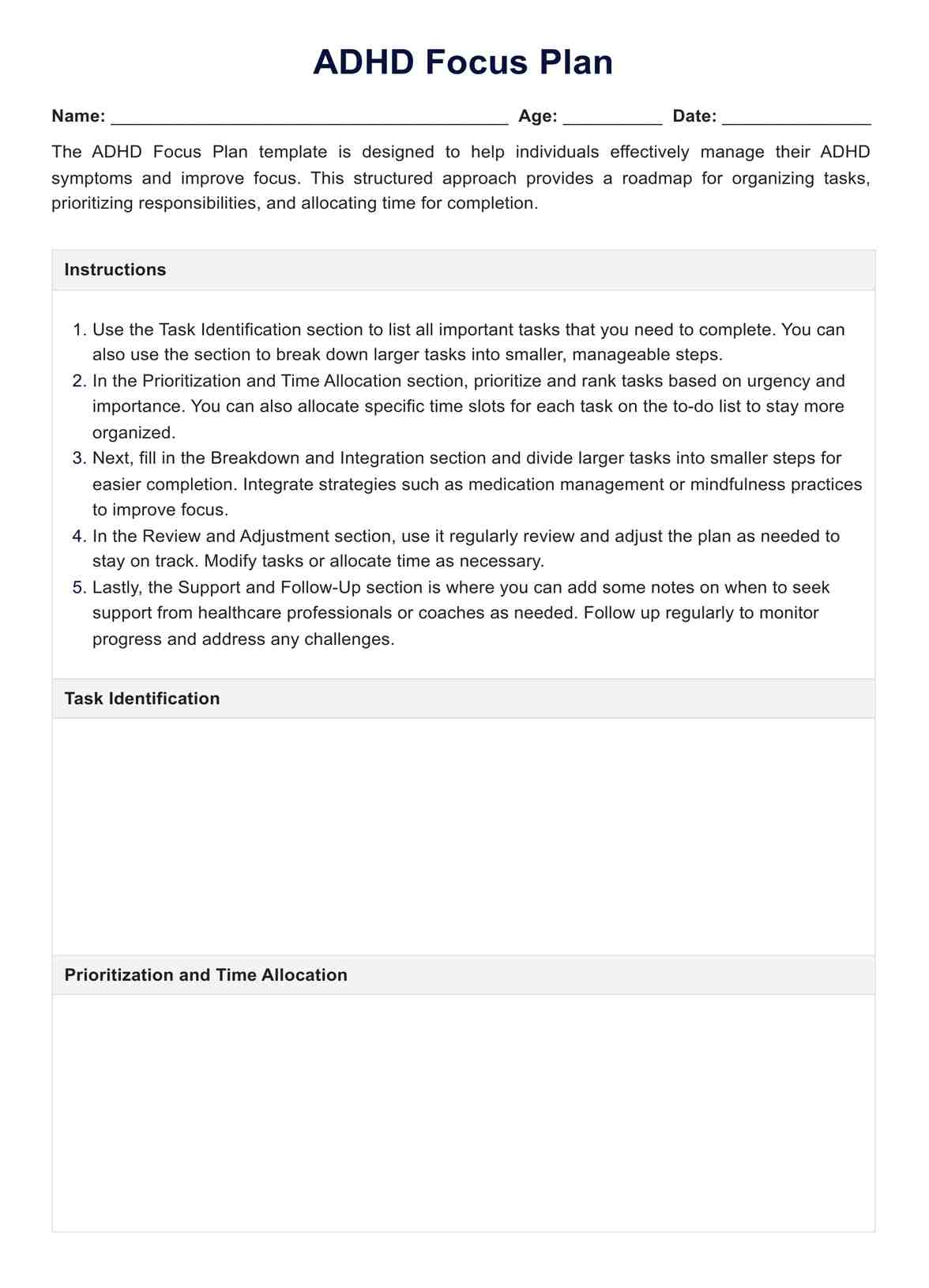

















-template.jpg)


























